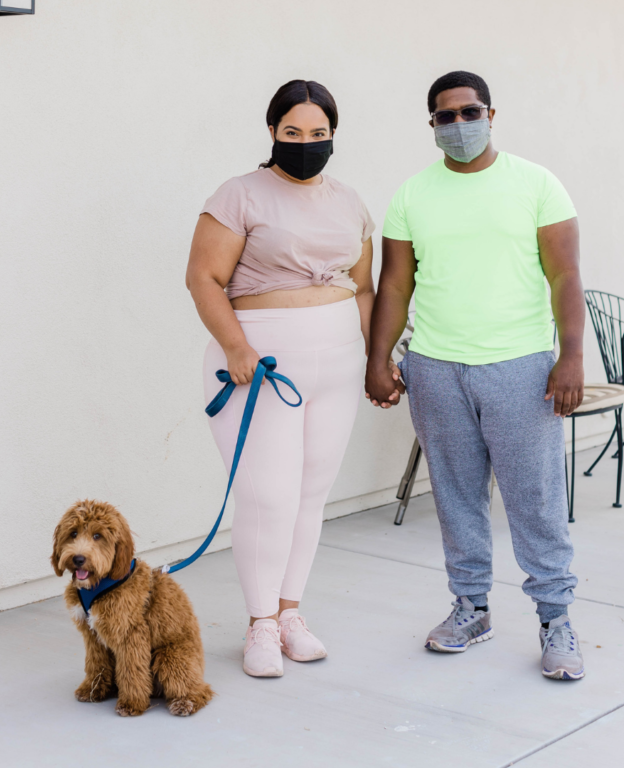We need more empathy and less judgment when it comes to pet owners who struggle with veterinary costs.
This blog post is part of an ongoing series co-authored by Aimee St. Arnaud and Suzanne Cannon
| This plea was recently posted to a local animal site asking for help: “This was such a devastating, random freak accident that left my heart shattered for my best friend. Milo is so silly, loving, and playful. Recently he got loose and got hit by a car. He broke his thigh bone into 2 pieces. First, they said he needed emergency surgery to place a plate but that was $2,200 to $2,600, which I couldn’t financially afford and donations weren’t going too well. I am struggling to even ask for money, especially a sum this large, but I would not be asking if I did not truly need it. I am extremely broke but want to do everything in my power to help my best friend, and sometimes that means swallowing your pride.” |
| Typical Responses: |
| Susie writes: I do know if you love your pet enough then rather than watch him die you would surrender him to the humane society so he can get the help he needs. |
| Jenny writes: You need to get this baby to a vet immediately! You need to get Care Credit or borrow money from your family to get him the care he needs!! |
| Jane writes: Get Care Credit! Or take a Dave Ramsey financial class. I learned to clean up my credit. Great class…helped enormously. |
| Rick writes: pets are expensive! If you can’t afford one you shouldn’t have one. |
Aimee’s Take
I can’t help but think about how I would feel if I had reached out for help and gotten these replies. Would I want to be told to surrender my dog to the Humane Society so he can find a “good” home with the insinuation being that my home is “bad” and I’m not providing for him like I should?
Would it make a difference if the commenters knew he already had the most loving home for the last 10 years but his person recently ran into a bit of bad luck? Is using the limited resources of the Humane Society to remove this dog from the home he knows, place him in a kennel taking up that space, and adopt him into a new family the best option?
Another comment recommends taking financial classes or getting CareCredit, and admonishes the distraught owner that he or she should do whatever it takes to provide for the dog. Have you ever said to yourself, “I’d live in my car before I’d give up my animals”?
Imagine what it might be like if you really were in such a dire situation that you’d been declined for CareCredit, have no family or friends who are able or willing to co-sign for you or lend you money, and you’re about to lose your housing in the middle of winter — but most human shelters don’t allow pets? Shaming someone who is in an urgent situation — by telling them what you would do in a hypothetical situation — only makes the person asking for help feel even more distressed and hopeless about their options.
It is easy to say, “if you can’t afford a pet you shouldn’t have one.” However, it’s not that simple, especially now in the age of COVID-19. There are many animals who are deeply loved by their families, but that family’s inability to afford veterinary treatment – especially emergency or surgical treatment — doesn’t necessarily indicate a lack of love or attentive care. Nor does it imply that they are a “bad,” irresponsible or neglectful pet owner.

Many of us are just one health issue, accident, job loss, or pandemic away from not being able to afford a large veterinary bill. With COVID-19 causing unprecedented unemployment, we know more people than ever will need financial assistance to manage the cost of veterinary care.
Facts and Stats
Did you know that 1 out of every 4 households has experienced a barrier to obtaining veterinary care in the last two years, and that number is expected to grow? The most common barrier cited in surveys is financial.
This isn’t just a problem for those who are living paycheck to paycheck, although nearly 60% of all Americans found themselves in that situation in 2020. 1 in 3 households are considered “financially fragile,” meaning they would have difficulty coming up with $2000 within 30 days in the event of an emergency.
While the majority of households that are financially fragile are low-income, nearly 30% of middle-income earners, and 20% of high-income earners, are also considered financially fragile.
According to Annamaria Lusardi of the Global Financial Literacy Excellence Center at George Washington University, “Financial fragility does not mean simply lack of precautionary savings. Both sides of a household’s balance sheet matter; heavy indebtedness can also make individuals financially fragile.”
With so many households struggling to manage ordinary expenses, especially over the past year, it’s not surprising that unexpected, out-of-pocket costs for veterinary care – particularly sick care – leave many pet owners without accessible financial options. But this doesn’t mean that they love their pets less than those who can more easily afford care, or that they shouldn’t have a pet.
Suzanne’s Story
More than 10 years ago, I was going through an awful divorce. This wasn’t something I planned for or ever even imagined — it isn’t for most people. At the age of 47, my 2 schnauzers and I had to move in with my mom.
When my 8-year-old schnauzer became suddenly and severely ill with pancreatitis late one Saturday night, I bundled her up and headed for the emergency vet. Knowing that I had pet insurance eased my mind somewhat.
The skill and attentiveness of the critical care team at the emergency facility saved my dog, but I was left with a $4000 bill that I couldn’t pay all at once.
My insurance policy turned out to be of little help because it required me to pay the full cost up front, and then submit a claim for reimbursement. Not knowing how I could possibly come up with $4000 in my current circumstances, I applied for CareCredit.
I was declined.
I felt both helpless and humiliated in that moment. What I didn’t know then was that I was probably declined for CareCredit because I didn’t have any credit in my own name, meaning I had no verifiable credit history. My soon-to-be ex-husband, a physician, had managed all our credit during our marriage.
I couldn’t imagine following through with the horrendous option before me: surrendering my beloved dog. I had loved and cared for her since she was 10 weeks old, and both my dogs were helping me cope with the emotional fallout from the divorce.
I was in a situation that, sadly, too many pet owners find themselves in after life has thrown them a curveball. I went from being a physician’s wife, with few worries about finances, to being newly single, living with my mom, and working part-time to rebuild my life.
I thought I had done everything “right.” I was a responsible pet owner, I was diligent in feeding both my schnauzers prescription diets to avoid bouts of pancreatitis, I made sure they received regular preventive veterinary care, and I’d had pet insurance for 10 years. Most important, I loved my dogs to pieces.
As I stood beneath the fluorescent lights at the reception desk at the emergency hospital, I knew I was willing to take on 2 or even 3 additional part-time jobs just to pay for the veterinary care that saved my dog’s life.
With a sinking feeling in the pit of my stomach, I realized that still wouldn’t help me find $4000 right away. It would take time for me to save it up. A long time. Even though I was willing and able to make payments, the vet said they couldn’t accept that kind of arrangement.
Had I suddenly become someone who didn’t deserve to have pets because I couldn’t come up with an immediate $4000 to cover an emergency vet bill?

What if the next time we see one of these stories, or a post asking for help with the cost of veterinary care, we think about the type of reply we’d want to get if we found ourselves in a similar situation?
What if we assume that most pet owners are doing their best to care for their pets, instead of judging them as financially irresponsible when they have difficulty affording the cost of veterinary care?
After all, we don’t know their story. We tend to fill in the blanks with information that we simply don’t have, and the story we concoct in our minds is often negative and judgmental.
What if instead, we received these pet owners’ stories with empathy, not condemnation?
What if those of us in the veterinary and animal welfare world galvanized our efforts to leverage existing resources so pets can stay in the loving homes they already have? AlignCare is an excellent example of this, but we need to develop additional sustainable solutions for overcoming cost barriers to veterinary care.
When we respond to a struggling pet owner with empathy and understanding, instead of judgment and condemnation, it doesn’t just feel better for that owner. It feels better for us, too.
In an upcoming blog, Aimee and Suzanne will explore options that veterinary clinics and humane organizations can offer to provide support to pet owners.
Aimee St. Arnaud is the former Director of National Veterinary Outreach for Best Friends Animal Society, and she is currently a business partner in two for-profit veterinary clinics located in Ohio and North Carolina that focus on removing barriers to care and developing community partnerships. Aimee’s latest project involves teaching veterinary hospitals how to develop their own financially friendly protocols that improve financial access to care without sacrificing revenue and profit. She has also been a member of VetBilling’s Advisory Board since December 2019. Read Aimee’s full bio on the Board of Advisors page.
Suzanne Cannon is the co-founder of VetBilling. She holds an M.S. in Pastoral Counseling from Loyola University of Maryland and an M.A. in Jewish Studies from Baltimore Hebrew University. Owing to her prior professional background as a pastoral counselor and hospital chaplain, Suzanne is passionate about helping veterinarians and pet owners find ways to navigate financial discussions and identify workable payment solutions in an atmosphere of emotional safety.
References:
Access to Veterinary Care: Barriers, Current Practices and Public Policy. December 2018, Access to Veterinary Care Coalition. University of Tennessee Knoxville College of Social Work. Accessed February 15, 2021.
New Data: 60% of U.S. Consumers Live Paycheck-to-Paycheck. April 9, 2020, PYMTS.com. Accessed February 15, 2021.
Household Financial Fragility During COVID-19: Rising Inequality and Unemployment Insurance Benefit Reductions. October, 2020. Financial Fragility Working Paper by D. Schneider, P. Tufano, A. Lusardi. Accessed February 15, 2021.
1 in 3 Americans Are Financially Fragile. April 16, 2018. National Endowment for Financial Education (NEFE.) Accessed February 15, 2021.
Program for Pet Health Equity, University of Tennessee Knoxville. Accessed February 15, 2021.

Loved your article! Two women and I founded Pet Assistance, Inc. (PAi) in 1973. Attitudes towards animals have certainly changed over the years. PAi has changed also. Now we exclusively help needy people with emergency and urgent care for their pets. Too many pets are suffering and dying at home solely because of the exorbitant charges of emergency, specialty, corporate owned and franchised hospitals. What is needed these days are low-cost emergency and surgical centers so every responsible pet owner can get affordable care. “Common sense and compassion” is one of our mantras!
My memoir, “What’s a nice dog like you doing in a place like this?“ (Amazon, 2020) covers my years helping people and pets. It also addresses the current problem and suggestions for a solution. I am glad there are other people that care about this problem as much as I do!
Hi Ruth! Thank you so much for commenting on our blog post. We are thrilled to hear about your organization and plan to be in touch with you soon to learn more about it, and maybe include a link to PAi on our website if that’s OK with you! — Suzanne Cannon, VetBilling co-founder